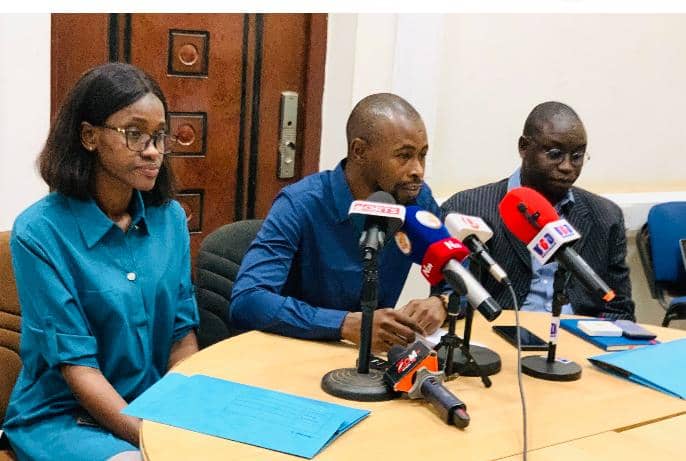By: Alieu Jallow
The National Mental Health Program has called for a positive portrayal of people living with disabilities. The call aims to uphold the basic human rights of individuals challenged by mental health issues. Officials at NMHP envision a shift towards using more acceptable terms such as “mental health” rather than outdated terms like “lunatic,” with a strong emphasis on community-based initiatives. This call was made on Thursday, February 22nd, 2024, during a press briefing.
Mam Jarra Merega, program manager at the National Mental Health Program, highlighted that individuals living with mental conditions continue to face a wide range of human rights violations, including stigma and discrimination, which can lead to disabilities such as depression and anxiety.
Madam Merega referenced statistics indicating that one in four people will experience a mental condition, with 1 in 3 women and 1 in 5 men experiencing major depression. She emphasized the alarming nature of these figures, posing serious challenges for psychiatrists and nurses.
“Our program, under the Ministry of Health, coordinates all mental health activities in the country. However, we cannot address these challenges alone due to resource constraints and limited human capacity. While we have made significant efforts, they may not always be highlighted in the media, but our challenges persist,” stated Mam Jarra Merega.
Momodu Gassama, WHO health promotion specialist, noted that everyone is vulnerable to mental conditions regardless of their status, emphasizing that the world is not doing enough to address mental health. He highlighted that the population living with mental health conditions surpasses that affected by HIV/AIDS, malaria, and tuberculosis, yet mental health receives disproportionately fewer resources.
“Approximately one in every 8 persons worldwide has a mental condition or disorder. Considering global health budgets, only 2% is allocated to mental health. In some countries, this allocation is even lower, sometimes less than 1%. This starkly contrasts with the prevalence of mental health issues globally,” stressed Momodu Gassama.
In The Gambia, mental health services are severely limited, with significant gaps in capacity, human resources, materials, medication, and outreach services, largely due to minimal budget allocations.
The Gambia continues to rely on the outdated Lunatics’ Detention Act of 1917 as the primary legislative tool for mental health, which does not align with international human rights standards.
In response, the Ministry of Health developed a new draft legislation in 2017 aligned with the WHO checklist for developing mental health legislation and international human rights instruments. This legislation aims to safeguard the human rights of people with mental disabilities, their families, and caregivers. It is hoped that once this bill is finalized and officially endorsed by parliament, it will not only protect the human rights and dignity of the mentally-disabled but also catalyze a transformation in mental health services in The Gambia. However, the question remains as to when it will be endorsed, as the draft document is still pending approval in the National Assembly.




